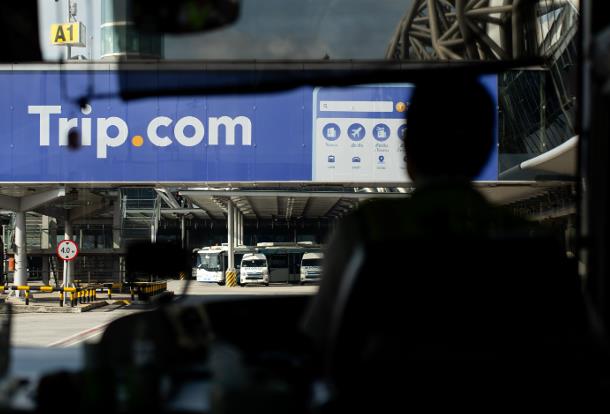ChinaTravelNews , Ritesh Gupta – Fighting fraud reviews to establishing a strong brand presence, the journey hasn’t been a smooth one for TripAdvisor in China over the years.
But now the company, which has been in news for signing deals with hotels and OTAs for instant booking option, believes it is set to play its part in the burgeoning outbound travel segment here. The team indicates that recent deals such as ones signed with Priceline for instant booking means that even in markets like China consumers can benefit from a streamlined experience, and this holds significance for the outbound category, too.
Instant booking to boost mobile + outbound
The “Book Now” button is expected to catapult the overall mobile experience of Chinese customers.
“Mobile is the future. We believe the introduction of instant booking option is going to enhance the overall customer experience, and is an upgrade of the TripAdvisor user experience,” says Leo Lin, Chief of Staff, TripAdvisor China. “Our Android app in China is one of the favourite travel apps of outbound travellers here and the iOS one is growing fast, too.” Lin mentioned that the instant booking option is going to elevate the whole experience, since the significance of mobile and completion of a desired task is going be fulfilled by one device, one channel.
The latest move isn’t a mere move to monetize the traffic, rather it is being seen as a vital addition to play a part in the overall booking funnel by the company, said Lin. For instance, in the case of the recent deal signed with Priceline for booking.com, users on TripAdvisor would be able to see Booking.com-branded hotel listings. If one wishes to go ahead with the booking, the user presses the “Book Now” button to book on TripAdvisor directly. “At the same time, the role of the partner is being made clear – the booking is being powered by the hotel or OTA (depending upon the deal signed for instant booking) and the same partner will handle all of the customer care related to the transaction.
Going by the experience of instant booking option in the U. S. and the U. K., Lin indicated that it offers “good value”. The company is ensuring that when a user clicks on a button to book a hotel from its partner, the design and creative elements of TripAdvisor aren’t compromised, and at the same time the logo and name of the partner are shown.
A major factor that goes in favor of TripAdvisor is that it is trying to arrest the drop-outs from its site.
It is clear that with serving of content of hotels or OTAs (especially their property-specific information in a localized manner, along with preferred payment options), a new dimension is being added to the lead that shapes up on TripAdvisor after going through its hotel reviews. This is something that TripAdvisor can count on as users makes a seamless transition from planning to booking on its partner site without one leaving the TripAdvisor site.
Concerted effort
TripAdvisor asserts that its presence – via both TripAdvisor and its new Chinese brand name, ‘Mao Tu Ying’ – is going to be strong enough for organic visits to its platforms. The company had introduced its rebranded China mobile app earlier this year to cater to Mainland Chinese outbound travellers, Chinese-speaking users from Hong Kong, Taiwan, in addition to the diaspora of Chinese natives across the globe.
Among its series of initiatives this year, the company had also introduced an international simplified Chinese site in the first quarter, and in doing so has expanded its offering for overseas Chinese. It is being acknowledged that there are nearly 50 million people of Chinese descent globally. So when TripAdvisor signs any partner, be it for OTA or a hotel organization, for instant booking, if there is content tailored for Chinese audience on partner sites, then TripAdvisor can capitalize on it. And for partners it would result in a qualified lead, resulting from TripAdvisor’s Chinese language sites for traditional and simplified Chinese users.
Even for OTAs such as booking.com, those have been signing direct contracts with Chinese hotels, it gives an opportunity to capitalise on TripAdvisor’s traffic. For instance, Priceline started 2015 with 8,000 properties in China on Booking.com, and as per the recent update it crossed 25,000 properties.
Looking at the collaboration between traffic generation/ hotel review sites and transaction sites, can one expect such featuring TripAdvisor and Chinese OTAs such as Ctrip, Qunar and eLong?
“We are keeping close eye” on the how the situation is evolving, mentioned Lin. “China is a highly competitive market and with consolidation happening, every move needs to be ascertained. Our strength is content and we are keen on utilizing it as outbound information that a traveller from China needs. So our priority remains offering the best content, and product to outbound travellers.”
The online travel segment is in the midst of an interesting phase – where traffic generation sites (be it for meta-search or a search engine such as Google), review sites and booking sites are looking at joining hands in order to have a bigger say in the purchase funnel. And the fact that it isn’t easy to structure everything from planning to booking in the Chinese language under one website/ app, tie-ups involving TripAdvisor and established brands are under vital development.




